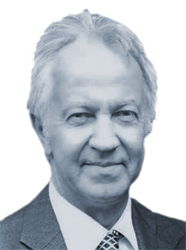 Sport and the law maintain, mostly, a delicate balancing act. Occasionally one side or the other loses control of the balancing pole. As with the Bosman Verdict, this guarantees a significant degree of chaos until a rebalancing can be established.
Sport and the law maintain, mostly, a delicate balancing act. Occasionally one side or the other loses control of the balancing pole. As with the Bosman Verdict, this guarantees a significant degree of chaos until a rebalancing can be established.
This is the greater issue at stake behind Sion president Christian Constantin’s promise to “attack on all fronts” in his attempt to have his Swiss club reinstated in the Europa League.
Demarcation lines are comparatively clear in the United Kingdom. Several high-profile cases, concerning notably the Jockey Club and the Football Association, established a principle of mutual respect: sport is granted freedom of control and disciplinary issues as long as they are managed with a proper notion of legal competence and quasi-judicial fairness.
An international equivalent was created in 1984, at the instigation of the International Olympic Committee, with the Court of Arbitration for Sport. This is accepted by all major sports as the ultimate judge and jury of disputes.
Beyond CAS (or, in French, TAS for Tribunal Arbitral du Sport) a complainant can go to the Swiss federal courts since CAS is domiciled in Lausanne, Swizerland. Hence the Asian football boss Mohamed Bin Hammam, in fighting his life ban, is committed to following this precise correct path: FIFA appeals committee, then (if unsuccessful) on to CAS then (if still unsuccessful) on to the Swiss courts.
This is not a speedy business. By the time Bin Hammam reaches the Swiss courts it may be late 2015, Sepp Blatter will have retired as FIFA president and anyone still around will wonder what the fuss was all about.
The time taken for the legal wheels to chug along is partly responsible for the Sion mess.
In early 2008 Sion president Constantin claimed to have signed Egypt goalkeeper Essam Al Hadary. His Egyptian club objected and the row went to FIFA. More than a year later, in June 2009, its disputes resolution committee found against Sion and imposed a two-window transfer ban.
Sion appealed to CAS which lifted the transfer ban pending completion of its own deliberations. But CAS did not deliver its own judgment until June 2010, more than two years after the ‘signing’.
CAS rejected Sion’s appeal, thus reinstating the two-window transfer ban. Sion claim it came into effect then and there, in mid-summer 2010 [by which time they had signed at least three new players**], and was completed with the closing of the January 2011 window.
FIFA, by contrast, considered the ban applied to this year’s two subsequent full windows.
Hence the furore when Sion signed half a dozen players this summer and fielded them in both the Swiss and Europa Leagues, most recently against Celtic.
The Swiss federation sought to ban Sion fielding any of the players in domestic competition. Constantin, asserting that the issue was now properly beyond CAS jurisdiction, went to his own local Swiss civil court in Martigny. This ruled in Sion’s favour and against the Swiss league.
Still following?
A further CAS appeal is in the pipeline but – again because of the ponderous nature of the legal system – cannot be heard for at least another month.
In the meantime FIFA and UEFA – which was just following orders, so to speak, in expelling Sion from the Europa League – are exposed to the vagaries of Constantin and the Swiss legal system.
FIFA has murmured about suspending Switzerland from international football as punishment for allowing Sion to take this dispute beyond the sports courts. But what else could the Swiss do than they have already attempted, in vain?
If Sion win the next stage of the battle Celtic will not be the only ones mightily upset.
** New players arriving at Sion in the summer of 2010 included Dutch defender Michael Christiaan Dingsdag from Heerenveen, left-side midfielder Jonas Elmer from Aarau and Romanian rightwinger George (Gheorghe Cristian) Ogararu from Ajax.






